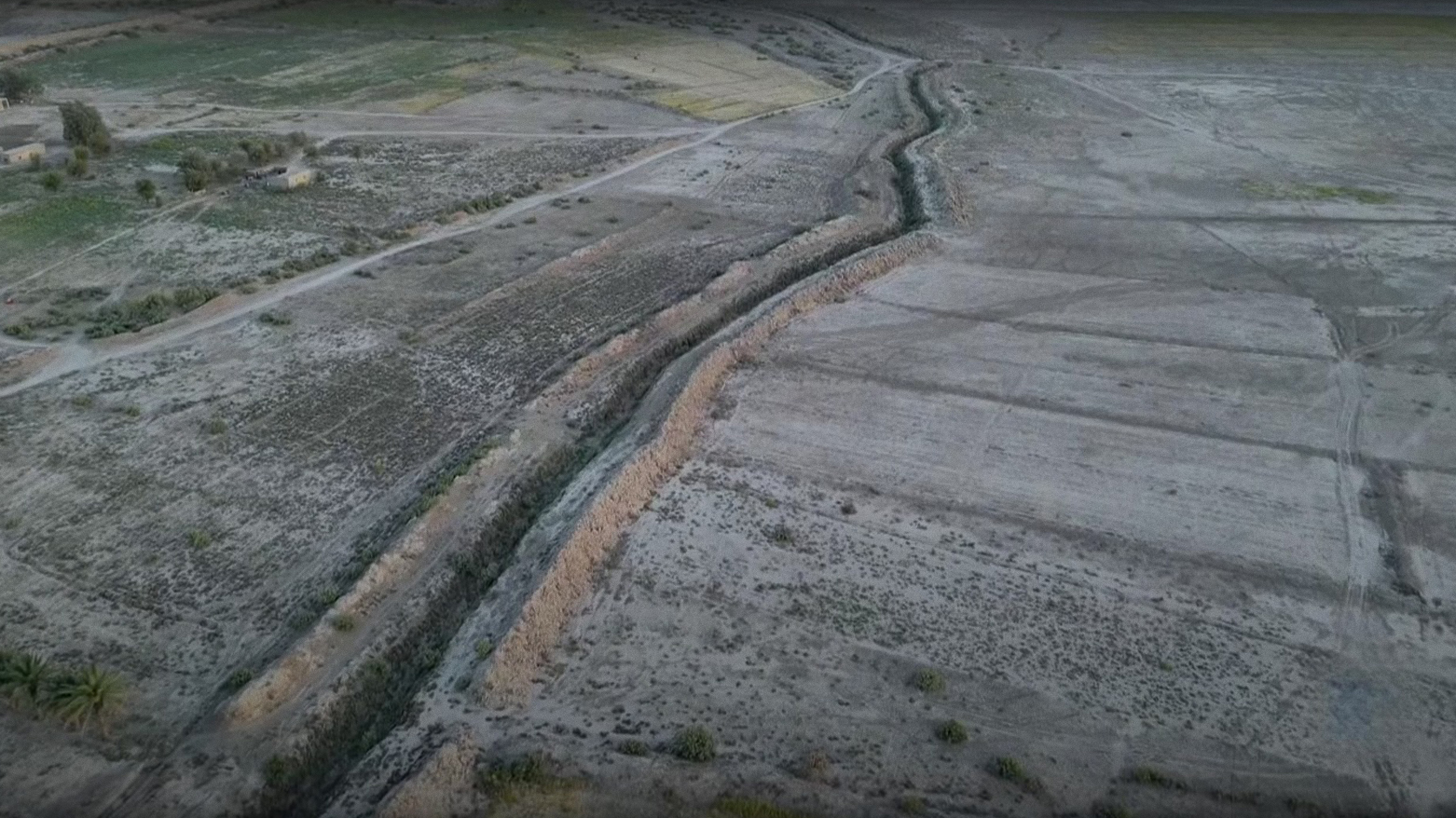Drought Turns Diwaniyah's 'Food Basket' to Barren Desert
A five-year drought in Diwaniyah's al-Shafi'iyah district has turned 40,000 dunams of farmland into desert, forcing families to flee. Residents travel 25km for water and appeal for urgent aid as livestock perish and wells turn saline.

ERBIL (Kurdistan24) — A relentless five-year drought has ravaged the al-Shafi'iyah district west of Diwaniyah province, transforming its once-fertile agricultural lands—a primary food basket for the region—into a barren desert, forcing dozens of families to flee their homes and leaving thousands facing a daily struggle for survival as their livestock perish and wells run dry.
According to a report from Kurdistan24's Hussein Al-Mayahi in Diwaniyah, the catastrophic environmental shift has left a deep scar on the landscape and the lives of its inhabitants. The scene today in what was once a thriving agricultural hub reflects a tragic reality experienced by more than forty villages. Over forty thousand dunams of land, now suffering from severe neglect and water scarcity, lie fallow, with not a single plot currently under cultivation.
The human toll of this environmental collapse is stark. For five years, the region has seen only brief winters, lasting no more than two months, while the population has endured continuous hardship from low rainfall and extreme drought.
"We suffer from thirst daily," one resident told Kurdistan24, painting a grim picture of their daily existence. "We are forced to travel 25 kilometers to get drinking water, and our living conditions are continuously deteriorating."
This desperate search for the most basic necessity of life has driven dozens of families to abandon their homes and land. After their farms dried up and their livestock perished, they were forced to flee to cities in search of a future that their ancestral lands can no longer provide.
The crisis extends below the surface. The wells that once sustained the communities have failed. Well water is reportedly no longer fit for human or even animal consumption. The report notes that the desperation is such that even digging new wells to a depth of 20 meters has proven ineffective, as the groundwater has become saline and has led to the spread of diseases.
Official statistics cited in the report confirm the scale of the devastation. More than forty thousand dunams of agricultural land across fifty villages within the al-Shafi'iyah district have been directly affected by the severe water scarcity. This has triggered a cascade of consequences, including a total decline in agriculture, the widespread death of livestock, and a direct threat to the lives and livelihoods of thousands of residents.
Faced with a seemingly hopeless situation, the people of the al-Shafi'iyah district are issuing a desperate appeal. They are calling on government authorities and humanitarian organizations to intervene and find urgent, sustainable solutions to the drought crisis. Their plea is for the provision of clean water sources to save what little remains of their lands and livestock, and to protect their future from being completely lost to the encroaching desert.
